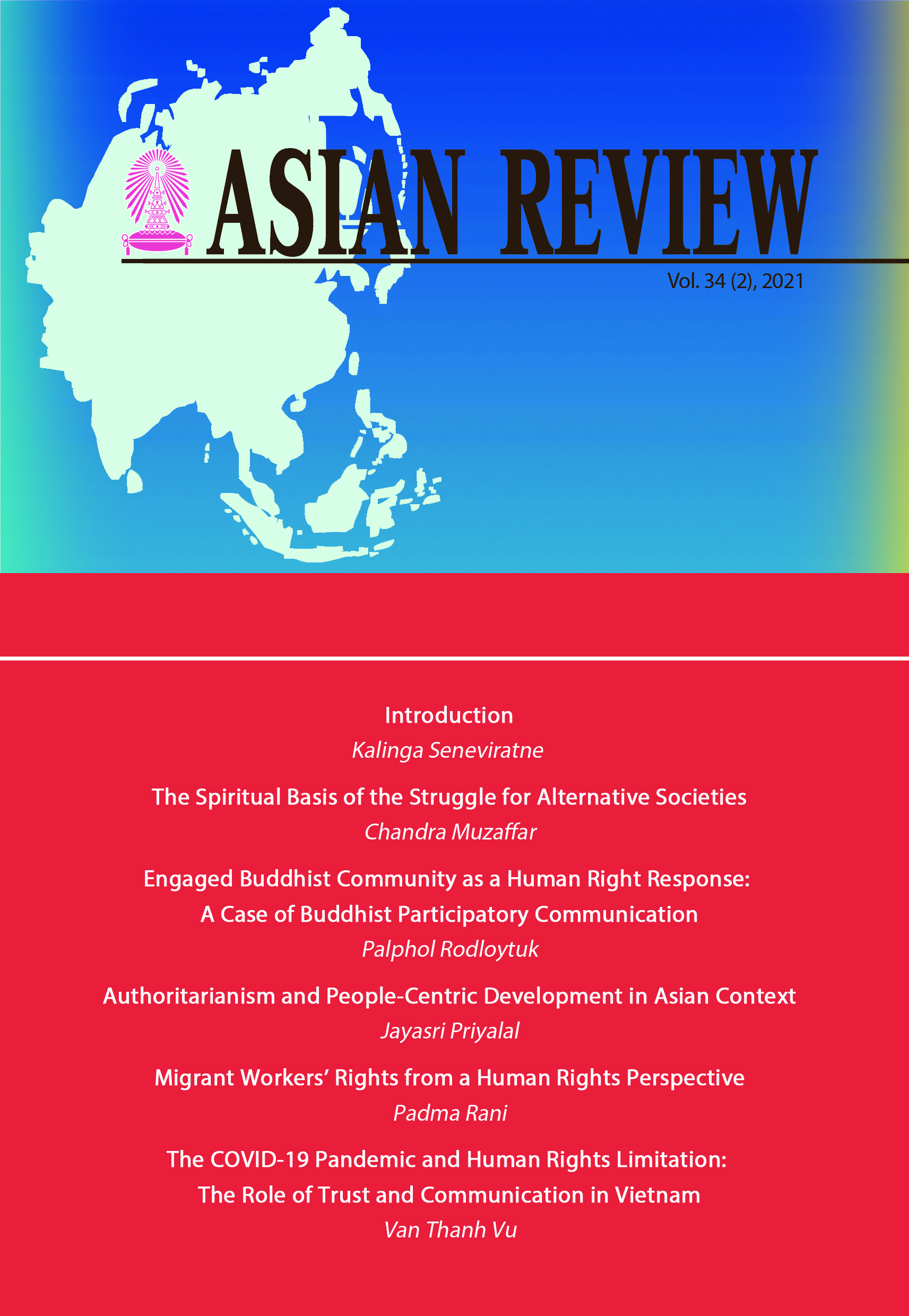Authoritarianism and People-Centric Development in Asian Context
Keywords:
Dhamma, culturalization, Participatory Democracy, Tolerance, Trans-civilizational Civilization, Ecological Civilization, Ten Royal Virtues, Just rule, Ashoka Chacra, Diamond Sutta.Abstract
What are the successes and failures of the Asian authoritarian political systems, and how they have evolved over the centuries? Thus, Chinese history became a chapter of human civilization. The famous saying reminds us that; those who cannot cope with changes will never initiate changes. What are those changes, and how did the rulers, emperors, and party leaders in China adjust to the change is worth exploring academically from a historical point of view,
The salient features of the code of conduct the rulers adopted presumably gave the numerous emperors a sense of direction to apply autocratic rule yet maintained a semblance of inclusive growth targeting their subjects. To what extent do those principles differ from the benchmarked guiding principles, explored to uncover the new learning points to make sustainable development goals a reality in this paper.
Unique development models that enabled inclusive growth in the ancient Asian Empires are examined extensively. How did the rulers ensure continuity and connectivity of Authoritarianism critically analyzed, focusing on the Peoples Republic of China.
References
Adair, John. 2013. Confucius on Leadership. London: Macmillan.
Balagalle, Prof Wimal G. 1957 (r p 2006). A Record of Buddhist Kingdoms or The Travels of Fa-Hsien. Boralesgamuwa, Sri Lanka: Visidunu Publishers.
Barua, B M. 1946 (1955). Asoka and his Inscriptions. Calcutta: New Age Publications.
Beng, Ooi Keng. 2015. The Eurasian Core and Its Edges. Singapore: Institute of Southeast Asian Studies.
Bloom, Theodore De Barry and Irene. 1960. Sources of Chinese Traditions in Earliest Times. New York: Colombia University Press.
Buddhanet. 2008. Buddhist Studies - The Chinese Buddhist Schools. Accessed July 13, 2021. http://www.buddhanet.net/e-learning/history/b3schchn.htm.
Cheng-Yang, Lu. 2013. Adaptive Leadership - Communist Party of China's Selection, Grooming & Renewal in the 21st Century. Singapore: Lien Ying Chow Legacy Fellowship, Nanyang Centre for Public Administration, Nanyang Technological University.
Deshpande, Madhav B. n.d. 'Interpreting the Ashokan Epithet devānaṃpiya',.
Dhammika, Ven. S. 1994. "The Edicts of King Ashoka." The DhammaNet International. Accessed July 11, 2021. https://www.cs.colostate.edu/~malaiya/ashoka.html#INTRODUCTION.
Ebrey, Patricia. 1993. Buddhist Doctrines and Practices in Chinese Civilization - A Source Book. New York: Free Press.
Handy, Charles B. 1994. The Empty Raincoat: Making sense of future. London: Random House.
Hui, Wang, interview by China Global Television Network (CGTN) Zou Yue. 2021. Professor Department of Humanities, Tsinghua University (July 01).
Kissinger, Henry. 2011. Henry Kissinger on China. London: Allen Lane.
Leys, Simon. 1997. Confucius, The Analects of Confucius. New York: W W Norton.
Mark, Joshua J. 2020. World History Encyclopedia -The Edicts of Ashoka the Great. June 29. Accessed July 12, 2021. https://www.worldhistory.org/Edicts_of_Ashoka.
Murrel, Jasmyn. 2017. "Virtuous Life, Honored Afterlife and the Evolution of Confucianism." History in the Making 89-109.
Rahula, Dr Walpola. 1959. What the Buddha Taught. London: Gordon Fraser.
Sahu, Bhairabi Prasad. 2018. "As'okan edicts: The genesis of the imperial idea and culture in early India and the debt to Iran." Studies in People's History 143-153.
Singh, Upinder. 2012. "Governing the State and the Self: Political Philosophy and Practice in the Edicts of Ashoka." South Asian Studies 131-145. doi:https://doi.org/10.1080/02666030.2012.725581.
Soka University of America. 2014. Commencement Address by Dr. Amartya Sen. May 23. Accessed July 14, 2021. https://www.soka.edu/about/our-stories/commencement-address-amartya-sen.
Somadeva, Prof. Raj. 2020. Unlimited History Episode 16 - #UnlimitedHistory, #NU1sVlog, Youtube. July 6. Accessed July 13, 2021.
Squarcini, Federico. 2019 Volume 45. "Selling tolerance by the pound: On ideal type fragility, Ashoka's edicts and political theology of Toleration in and beyond South Asia ." Philosophy and Social Criticism 477-492.
Straits Times Press. 2018. One Man's View of the World - Lee Kuan Yew. Singapore: Straits Times Press.
Terrill, Ross. 2000. Mao: A Biography. Stanford: Stanford University Press.
Wells, H G. 1921. The Outline of History. Being a Plain History of Life and Mankind. New York: Macmillan Company.
Zakaria, Fareed. 2020. Ten Lessons for A Post-Pandemic World. New York: W W Norton & Company.
Zhang Yingpin, Fan Ding, Mao Peiqi. 2003. Chinese History and Civilization. Beijing: Central Literature Publishing House.
Downloads
Published
How to Cite
Issue
Section
License
Published articles are under the copyright of the Instiute of Asian Studies, Chulalongkorn University. Partially or totally publication of an article elsewhere is possible only after the consent from the editors.







